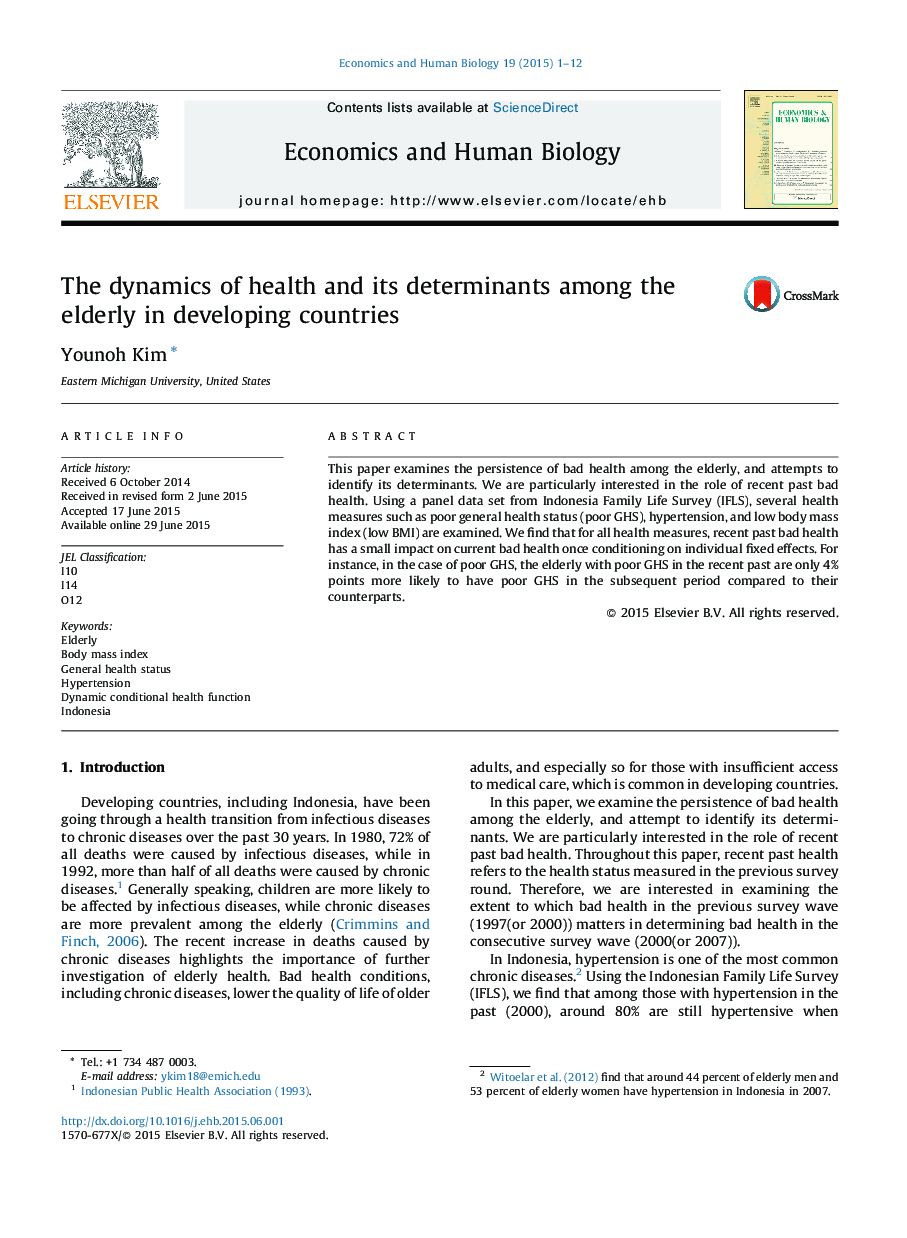| Article ID | Journal | Published Year | Pages | File Type |
|---|---|---|---|---|
| 5056927 | Economics & Human Biology | 2015 | 12 Pages |
â¢We examine the persistence of bad health among the elderly, and identify its determinants.â¢Recent past bad health has a small impact on current health, when conditioning on fixed effects.â¢Recent past poor health (self-assessed health) increases the probability of having poor health again in the future by only 4%.â¢Individual fixed effects capturing genetic endowments and childhood/early adulthood health matter most.
This paper examines the persistence of bad health among the elderly, and attempts to identify its determinants. We are particularly interested in the role of recent past bad health. Using a panel data set from Indonesia Family Life Survey (IFLS), several health measures such as poor general health status (poor GHS), hypertension, and low body mass index (low BMI) are examined. We find that for all health measures, recent past bad health has a small impact on current bad health once conditioning on individual fixed effects. For instance, in the case of poor GHS, the elderly with poor GHS in the recent past are only 4% points more likely to have poor GHS in the subsequent period compared to their counterparts.
